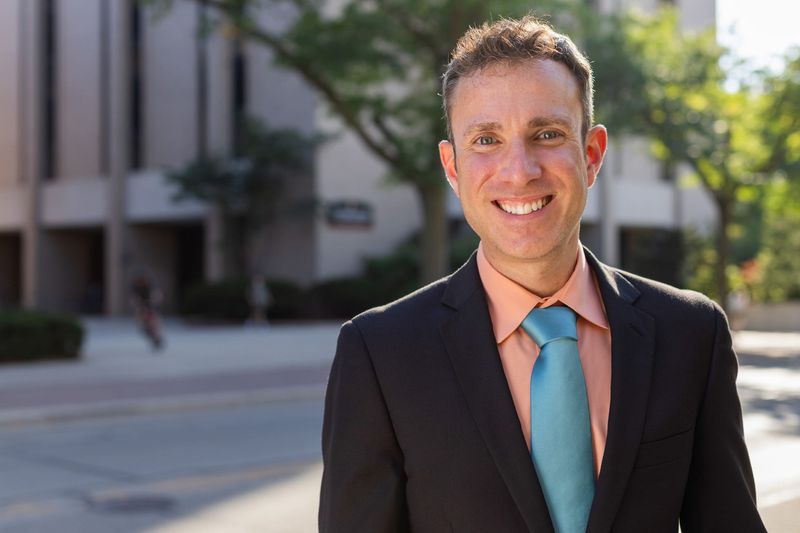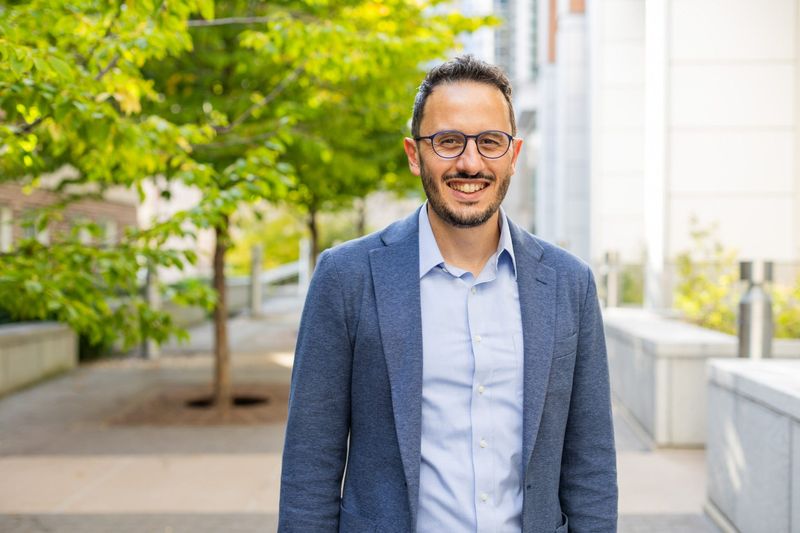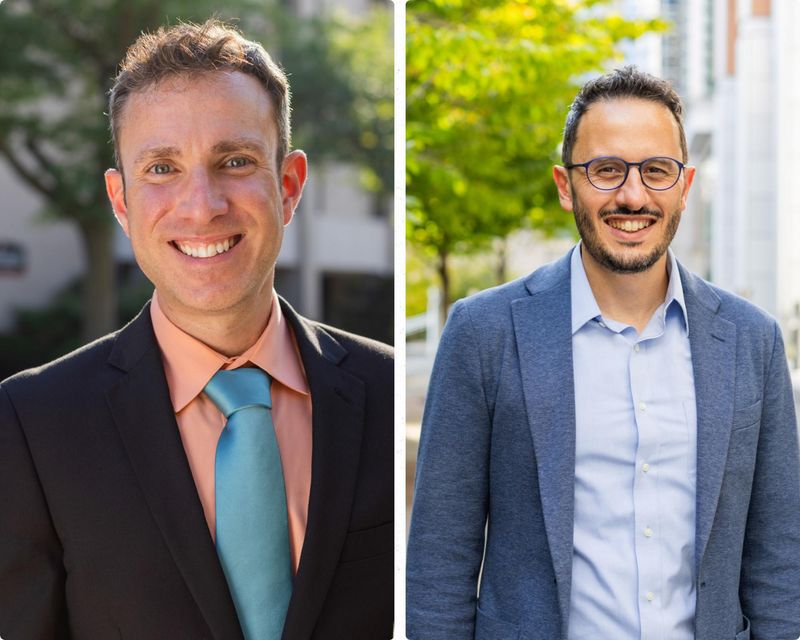Two University of Wisconsin-Madison professors are among a select group of newly annointed geniuses.
The John D. and Catherine T. MacArthur Foundation named atmospheric scientist Ángel Adames Corraliza, 37, and nuclear security specialist Sébastien Philippe, 38, as recipients of the prestigious MacArthur fellowship. Also known as the “genius grant,” the national award is given annually to a small group of people across a range of disciplines who show exceptional creativity in their work and future ambitions.

Each fellow receives $800,000 over the next five years to spend however they see fit.
How do you receive a MacArthur “genius” grant?
Individuals cannot apply. Instead, anonymous nominators submit names for consideration and a rotating secret selection committee decides. Corraliza and Philippe were among 22 people selected for this year’s award.
The lack of an application makes for great stories when the MacArthur Foundation informs people they have been selected. Many suspect a spam call and don’t pick up the phone, leading foundation staff to sometimes devise ruses.
Corraliza, a UW-Madison associate professor in the atmospheric and oceanic sciences department, said he received an email from the MacArthur Foundation a few weeks ago asking for a work consultation. He prepared for the call, even pulling up papers on his computer so they would be easily accessible.
“They called and said, ‘Just kidding, we’re giving you the MacArthur grant,'” he said. “Honestly, my brain just melted and I don’t remember much after that.”
Ángel Adames Corraliza studies climate patterns near equator
Adames Corraliza’s research focuses on tropical weather and climate patterns.
He has made significant advances in quantifying the role and impact of moisture in tropical weather and climate phenomena, which contributes to a better understanding of monsoons and hurricanes. His work lays the foundation for improved weather forecasting, the MacArthur Foundation said.
“There’s this intricate dance, a two-way street interaction between how the environment sets the clouds, and then how the clouds communicate back to the environment and tell it how it should evolve,” he told UW-Madison. “I want to understand that dance.”
Adames Corraliza joined UW-Madison in 2020 after several years at the University of Michigan and as a scientist at the National Oceanic and Atmospheric Administration. He is from Puerto Rico.
He said he has never received such a large amount of money before and is still figuring out how to spend the MacArthur grant. He and a colleague are working on a book, and one idea is to use some of the money to hire a graphic artist to help explain concepts discussed in the book.
Sébastien Philippe is a nuclear security specialist at UW-Madison
Philippe joined UW-Madison as an assistant professor in the nuclear engineering and engineering physics department this fall. It was his first week in Madison when the MacArthur Foundation called him. He was surrounded by moving boxes in his home office, thinking of all the work ahead to start a research group and recruit students.
“I got the call and I was just blown away,” he told the Milwaukee Journal Sentinel. The money gives him the freedom to pursue research he believes is important at a time when the federal funding landscape is shaky. The Trump administration has cut billions in scientific research.
Philippe’s work focuses on reducing the risk associated with nuclear weapons. He has studied the environmental impact of nuclear weapons tests by France and the U.S. using declassified documents, historical weather reports and atmospheric modeling. His interest stems from family members who served in the French Navy.
His research showed far more people in French Polynesia, New Mexico and Nevada were exposed to radiation than acknowledged in official records, leading to policy changes and expansion of the parameters for compensation under the Radiation Exposure Compensation Act.
Philippe was appointed in August to a United Nations panel that will produce a report on the consequences of nuclear war at local, regional and global scales. It’s the first report of this type in 40 years.
What other UW-Madison employees have won MacArthurs?
Cartoonist and art professor Lynda Barry and climate researcher Andrea Dutton received the award in 2019. Historian Monica Kim was named a fellow in 2022.
Who else has won a MacArthur grant?
Since the fellowship launched in 1981, more than 1,100 have won the award, including journalist Ta-Nehisi Coates, surgeon and author Atul Gawande and sociologist Matthew Desmond, who wrote an award-winning book about eviction in Milwaukee.
Other grant recipients this year include a novelist who writes about the Native American experience, a chemical engineer developing ways to recover resources from wastewater, a photographer who documents migrant farmworkers and impoverished communities and a structural biologist whose work was critical in developing the COVID-19 vaccine.
For a full list, visit macfound.org/programs/awards/fellows/.
Kelly Meyerhofer has covered higher education in Wisconsin since 2018. Contact her at kmeyerhofer@gannett.com or 414-223-5168. Follow her on X (Twitter) at @KellyMeyerhofer.
This article originally appeared on Milwaukee Journal Sentinel: MacArthur 2025 ‘genius’ grant winners include 2 UW-Madison professors
Reporting by Kelly Meyerhofer, Milwaukee Journal Sentinel / Milwaukee Journal Sentinel
USA TODAY Network via Reuters Connect




